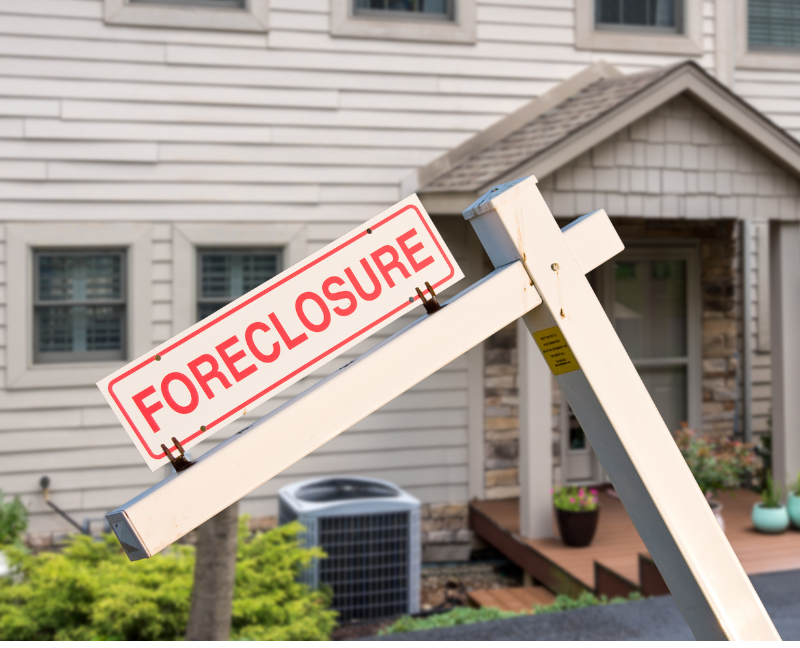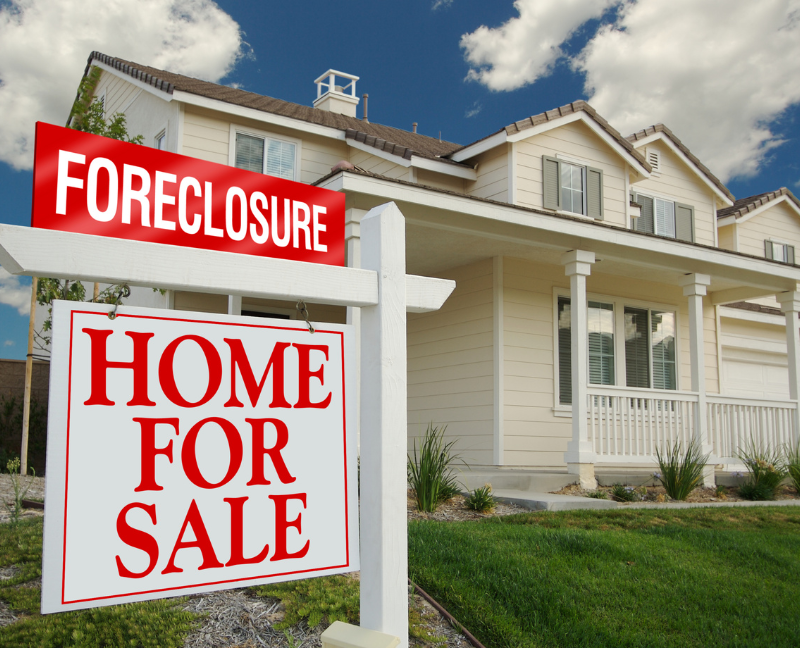"Make money buying real estate."
"Now's the best time to buy a home."
"Buy houses for pennies on the dollar."
These are the kinds of remarks that people typically relate to foreclosures on real estate. In reality, foreclosures on real estate rarely result in instant financial success. Of course, there are great deals to be taken advantage of but still, it's not gonna offer easy money to anyone. Nonetheless, you can get those possible benefits through a lot of effort and devotion.
In this post, we'll answer the following questions:
What does foreclosure mean?
What are the pros and cons of buying a foreclosed property?
What are the steps in buying a foreclosed property?
So without further ado, let's get started.
What Does Foreclosure Mean?
Homeowners rarely buy a home outright or in cash. To finance the purchase, they typically obtain a mortgage from a bank or other lender. After that, it is the buyer's responsibility to pay the lender on time.
However, buyers occasionally miss these installments. The University of Illinois lists the following as typical causes:
Divorce resulting in financial strain
Huge medical expenses, especially when the homeowner is uninsured or underinsured
Death of the primary income earner
Loss of source of income (example: job or business)
How Does Foreclosure Work?
Liens are legal devices included in all mortgage transactions. The lender's monetary interest in the house is safeguarded by a lien. If the borrower defaults on the loan, it enables the institution to take possession of the asset.
Banks typically assist financially troubled homeowners in attempting to resolve their issues. If those don't work, the bank will use the mortgage contract's lien to foreclose on the house and seize possession of it.
The bank will then either sell the house directly or put it up for auction. There are situations where the present owner will close a short sale. Through this procedure, a buyer can purchase the house at market value, even if that sum is insufficient to pay off the remaining mortgage balance.
Now, the event where the lender or the banker seizes the home, that's is called foreclosure.
Pros Of Buying A Foreclosed Home
Buying a foreclosed home has the following advantages:
Reduced Costs:
Without a doubt, foreclosures typically come with a lower price tag or are priced below market value than other types of real estate. This is because the lenders who set their prices just want to get rid of the property faster.
Standard Financing Arrangements:
Compared to regular residences, foreclosure properties may have a different bidding and purchasing procedure. But if the property isn't being sold in a cash-only auction, you might be able to get a loan to buy a foreclosed home.
One may obtain a traditional loan or one backed by the government through the Department of Veterans Affairs (VA), Federal Housing Administration (FHA), or S. financing from the United States Department of Agriculture (USDA) if the house is livable.
Lending secured by the government helps lower the cost of becoming a homeowner. However, the property needs to match the loan's minimal property requirements to be eligible for the loan.

Cons Of Buying A Foreclosed Home
Buying a foreclosed home has the following disadvantages:
More Maintenance Issues:
There might be a chance that the foreclosed home you're buying has been neglected by its former owners. If that's the case, you might need to not only check the problems but also, spend money to fix them.
Take Note: The primary goal of the lender is to get their money back as soon as possible, which nearly always entails an as-is selling.
If you don't have a lot of money to spend on repairs, you shouldn't purchase a foreclosure.
Squatter's Rights:
Just because a house is foreclosed upon legally does not mean it is abandoned. Squatters may be drawn to foreclosed properties since they are sometimes vacant for months or even years. You have the right to evict a squatter who occupies the house if they do. However, evicting them may not be easy. Sometimes, it might take months to complete the eviction and you have to spend thousands of dollars for legal costs.
FAQS On Buying A Foreclosed Home
Here are some questions people commonly ask before purchasing a foreclosed property:
Should I Buy A Foreclosed Home?
Purchasing a repossessed property comes with risks related to neglect, damage, and property degradation. On the other hand, buying a foreclosed home is beneficial since it lets you save money because you are getting the house at a reduced price.
When determining whether a foreclosure is the best option for you, consider your financial circumstances and ability to make repairs. Because the property might require more work than you anticipated, weigh the risks involved in your investment. Consider all the options carefully before determining if purchasing a foreclosed home is a wise move for you.
Is It Good To Invest In Foreclosed Homes?
Whether purchasing a foreclosed home is a wise investment depends in part on your real estate investing objectives.
Final Note
For those looking to purchase a home at a reduced price or below market value or keen to restore and customize a property, purchasing a foreclosure may present a special opportunity.
However, you should also consider the disadvantages it might have, such as the amount you might spend fixing the property.
Nonetheless, knowing whether it's the right property for you or not depends on your real estate goals and circumstances. If you decided to pursue a foreclosed property, we’ve written a detailed guide on what to expect when buying a foreclosed home.

